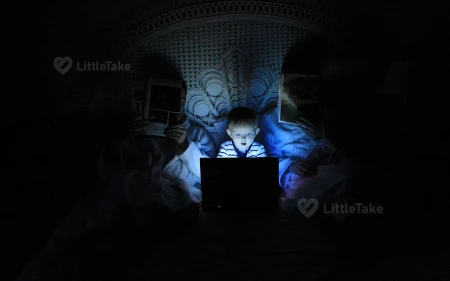
Dealing with Inappropriate Content
As digital marketing assistants at littletake.com, we understand the importance of ensuring children's safety while navigating the online world. Inappropriate content can be harmful and confusing, so it's crucial for parents and guardians to guide children through the internet safely. In this article, we will discuss strategies for dealing with inappropriate content and how to educate kids on safe online practices.
1. Establish Open Communication
Encourage open and honest communication with your children about their online experiences. Ensure they feel comfortable discussing any concerns or encounters with inappropriate content. This foundation of trust allows you to address issues and offer support effectively.
2. Set Parental Controls
Implement parental controls on devices, search engines, and applications to limit exposure to inappropriate content. These tools can filter out potentially harmful material and provide a safer browsing experience for your kids.
Real-life Example: Sarah's Encounter with Inappropriate Content
Sarah, a 12-year-old, stumbled upon an inappropriate website while doing research for a school project. She immediately closed the browser and informed her parents. Sarah's parents praised her for her honesty and quick action. They then implemented parental controls to reduce the risk of future encounters with inappropriate content.
3. Teach Critical Thinking Skills
Help your child develop critical thinking skills to evaluate the content they encounter online. Encourage them to question the credibility and appropriateness of websites and materials, and to report anything suspicious or concerning.
4. Educate Them About Online Safety
Teach your children about the importance of online safety and maintaining their privacy. Discuss the potential dangers of sharing personal information and the risks associated with engaging in online interactions with strangers.
5. Create a Family Media Plan
Develop a family media plan that outlines guidelines for internet usage, including the types of content allowed, time limits, and designated online spaces. This plan provides a clear framework for online safety and encourages responsible digital behavior.
6. Monitor Your Child's Online Activity
Regularly monitor your child's online activity to ensure they are engaging with appropriate content. This oversight allows you to intervene and address any issues promptly.
Conclusion
Dealing with inappropriate content is an unfortunate reality of the digital world. However, by fostering open communication, implementing parental controls, and teaching children about online safety, you can minimize the risk and navigate the internet together safely. Remember, education and guidance are crucial in helping kids become responsible digital citizens.













